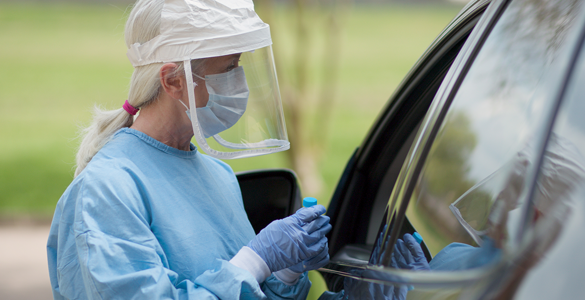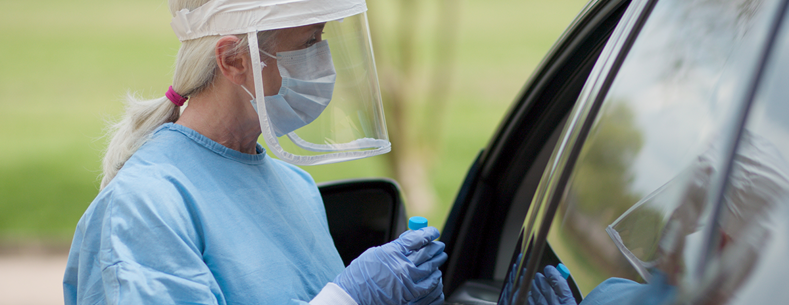The Senedd is due to debate on 30 September 2020 the Health, Social Care and Sport Committee’s report on the Covid-19 outbreak.
The report pays tribute to the work of health and social care staff, other key workers, carers, volunteers and the Welsh public in tackling the outbreak. At the same time, It also states that the coronavirus pandemic exposed what it describes as serious weaknesses in a number of areas, including initial production and acquisition arrangements for PPE, the set-up for coronavirus testing, critical care capacity and the ability to protect older people living in care homes.
The background to the report
In March 2020, the Committee agreed to pause all business not directly related to Covid-19, and to undertake an inquiry into the impact of the outbreak, and its management, on health and social care in Wales. As part of this, the Committee examined the response by the Welsh Government and relevant public bodies, as well as considering the impact on staff, patients and others receiving care or treatment in both clinical settings and the community.
The Committee issued an open call for evidence and conducted a survey to better understand the experience of front-line workers, and those whose health or care needs have been affected by Covid-19. The Committee also held a series of virtual oral evidence sessions with a range of organisations and Welsh Government The aim was to identify lessons learned thus far, to assist future management of the outbreak. This is to be the first in a series of reports on this issue, reflecting the fact that the outbreak is still with us, with new issues and challenges are emerging.
The Committee took a deliberate decision to focus on a small number of areas ‘in which there were the most pressing concerns and need to make progress quickly’: PPE, testing, shielding of vulnerable people, and the financial impact on local government and social care.
The Committee’s findings and recommendations
The report was published on 8 July 2020, and in the foreword, Dr Dai Lloyd, Chair of the Committee, notes that:
The scale of the challenge facing governments and their partners in dealing with the effects of Covid-19 has been unprecedented. Enormous efforts have been made across the board, resulting in many significant achievements.
The Committee made 28 recommendations in its’ report, including calls for:
- A stockpile and resilient supply of PPE, building on the improved position that has been achieved;
- Ready access to testing, especially for key workers, with swift turnaround times for results;
- An efficient and effectively functioning contact tracing system;
- Ensuring care homes are protected and supported through testing;
- A clear, structured and responsive approach to those who have been shielding or are vulnerable;
- Financial support to local authorities and adult social care.
Welsh Government’s response
The Welsh Government’s response (19 August 2020) to the Committee report also highlights the hard work of health and social care staff. It also sets out the unprecedented nature of the challenges that came with the outbreak:
Difficult decisions were taken that reflected the pressure and significance of the situation that we were all confronted with and we were mindful of the need to respond to a rapidly changing environment.
The response acknowledges that committee ’has appreciated the complex position that those managing the pandemic were faced with’. However, it notes also that ‘the committee’s report says that it will apply the evidence as known at the time but, in some cases, it would appear that knowledge known now has been applied retrospectively’, particularly in relation to decisions around care homes and policy on asymptomatic testing.
The Welsh Government accepted 26 of the recommendations (9 in principle), but rejected recommendation 20 and part of recommendation 10.
Recommendation 10. The Welsh Government must ensure that:
- Testing within care homes takes place on a regular and systematic basis;
- Such tests are administered by suitably trained individuals rather than using home testing kits;
- Sufficient capacity is available to support both of the above.
The Welsh Government did not accept recommendation 10’s position in relation to home testing kits being used in care homes. Their response states that ‘extensive guidance and training for administering the home testing kits has been developed and this approach is recognised as effective and flexible to meet the particular needs of care homes’.
Recommendation 20. The Welsh Government should move immediately to a system where contact tracing begins either on receipt of a positive test, or within 24 hours.
The Welsh Government rejected this recommendation, saying that contact tracing ‘can only begin on receipt of a positive test’.
The Welsh Government response also notes that:
I can confirm that many of the recommendations reflect areas which are already in train and where there is already strong progress…
You will be aware that there was no blueprint for COVID-19. While plans for a flu pandemic had been developed and tested, the scale and impact of COVID-19 was unprecedented. Together with partners across health, social care and beyond we are learning to prevent, contain and treat this disease and we recognise that we will continue to live with the virus in many aspects of our daily lives for some time to come.
Article by Dr Paul Worthington, Senedd Research, Senedd Cymru
We’ve published a range of material on the coronavirus pandemic, including a post setting out the help and guidance available for people in Wales and a timeline of Welsh and UK governments’ response.
You can see all our coronavirus-related publications by clicking here. All are updated regularly.






